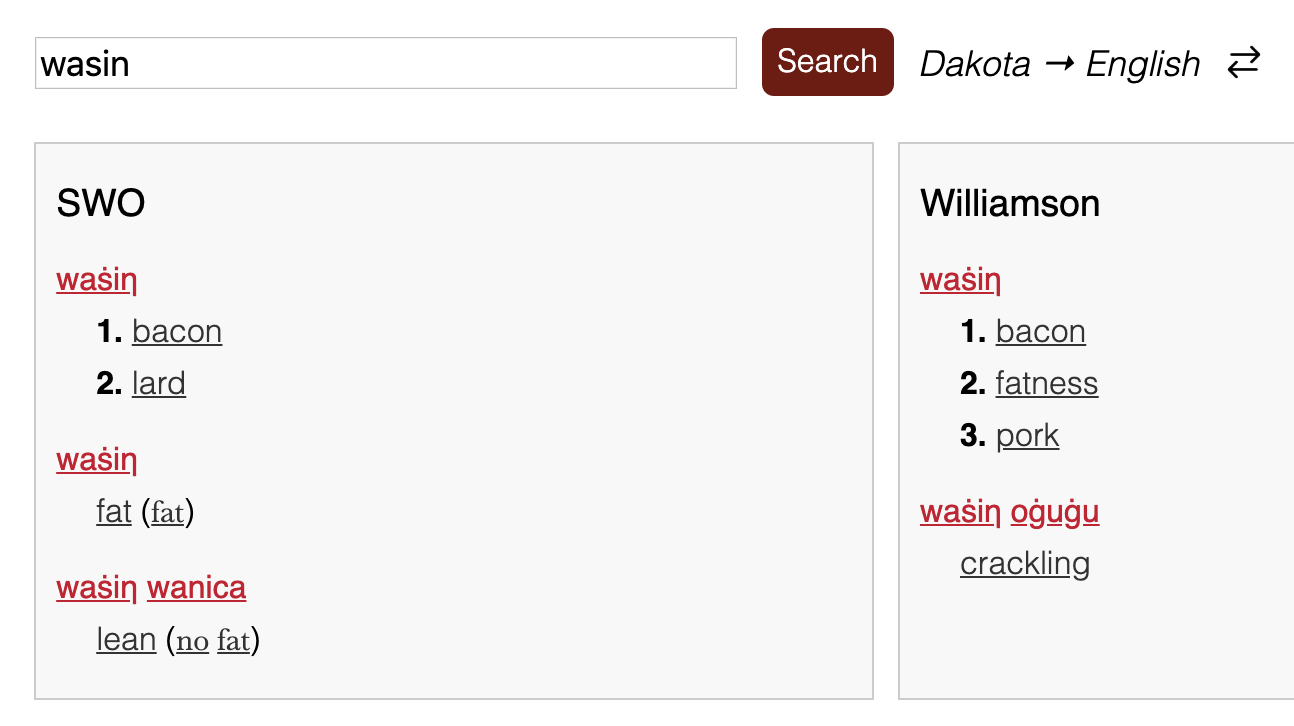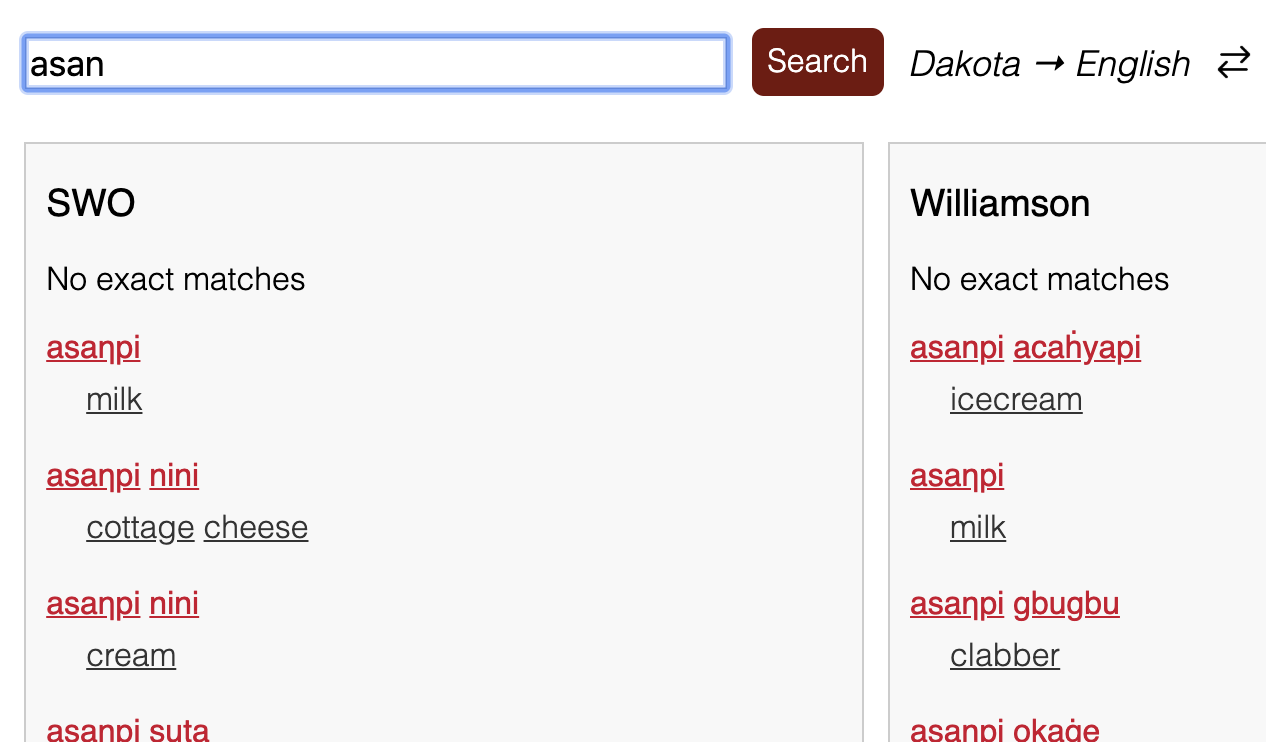This online dictionary is intended to help speakers and learners of the Dakota language.
It's a beta—please send us feedback!
Please send ideas for improvement to Jeff Ondich at ondich@ultralingua.com.
- There's a typo. You can see it by searching for such-and-such a word.
- Here's a screenshot of something broken.
- I saw something weird. Here's how you can make it happen again.
- I saw something weird but I don't know how to make it happen again.
- Could you make the dictionary do X?
- etc.
Where did the data come from?
- An English-Dakota Dictionary, by John P. Williamson, published in 1902 by the American Tract Society and reprinted in 1992 by the Minnesota Historical Society. This public domain dictionary was manually digitized by the Sisseton-Wahpeton Oyate Dakotah Language Institute (SWODLI).
- English to Dakotah Dictionary, As Spoken By the Sisseton-Wahpeton Oyate, written by SWODLI and the Sisseton-Wahpeton Treasured Elders, and published by SWODLI in 2015.
Using the dictionary
Type the word you're looking for and hit Enter or click Search.
Click on a word in a definition to search for it.
The search engine is forgiving. You don't have to exactly match capital or lowercase letters, you can type n to match ƞ, you can type s to match ṡ, etc.

Don't worry about setting the "Dakota → English" vs. "English → Dakota" settings. The dictionary will automatically detect which language your word is from and adjust the display accordingly.
show results near the text you entered, in whichever language is currently shown as active.If there aren't exact matches in English or Dakota, you'll be shown words near whatever text you typed. This means you can just type the first few letters of the word you're looking for.

Type a number and see how it would be said in English and Dakota.

This is a very early prototype. We based it on a few elementary introductions to counting in Dakota plus some guesswork, so it's almost certainly only partially correct. We'd be thrilled to get feedback on what we've gotten right and wrong about numbers in Dakota.
If you're using this site on your phone, the Williamson results will appear below the SWO results instead of to the right. For words with lots of results (e.g. "tipi"), you might have to scroll quite a ways down to see the Williamson results.

The Williamson dictionary uses apostrophes to indicate stress on a syllable (e.g. ti'pi). Our search engine ignores apostrophes in search, so you can enter words with or without apostrophes.
Credits
This website is a collaboration of the Sisseton-Wahpeton Oyate Dakotah Language Institute and Ultralingua, Inc..